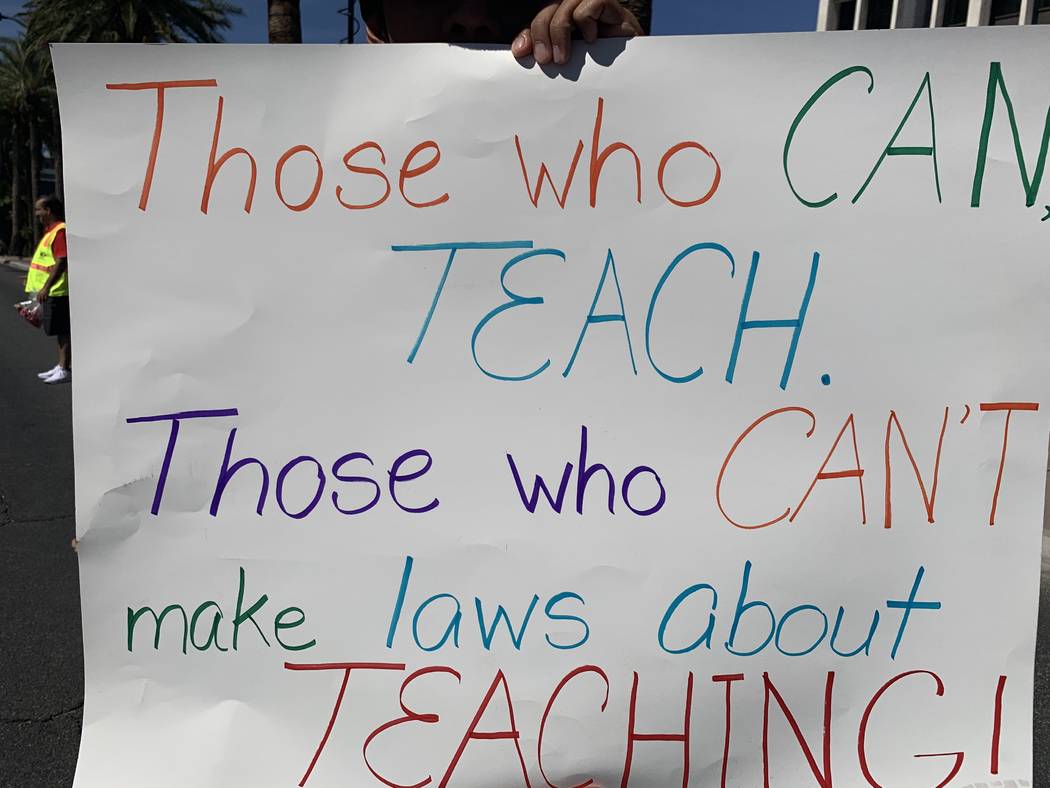COMMENTARY: Nevada must spend more on education
With Democrats in Carson City holding the Governor’s Mansion and Legislature, and schools at the center of everyone’s agenda, 2019 should have been the year when Nevada effectively moved the needle on public education funding. But before I add my voice to the chorus of disappointment, allow me to outline positive legislation that was passed for our students, educators and classrooms during the session.
Legislators identified sources within the budget to fund 3 percent raises for all educators, including support staff professionals. Additional resources were directed to proven programs, such as Zoom and Victory schools, to increase education equity for students who are English learners or living in poverty. The teacher supplies reimbursement legislation for out-of-pocket expenses was streamlined and its funding doubled.
Elected officials also made progress in addressing the unrealistic expectations placed on educators in the classroom. Laws were passed making teacher evaluations fairer and averting the mass retention of approximately 10,000 third-grade students. Small steps were made in reducing class sizes and requiring schools to report better data. The regulation of charter schools has improved by requiring more transparency and the development of a 5-year growth plan for state charter schools.
Unfortunately, the 2018 Quality Counts report from Education Week ranks Nevada 47th in per-pupil funding and dead last in both class size and overall education quality.
Nevada ranks near the bottom in education funding due to a structurally deficient tax structure. Unfortunately, the ceiling on state funding was set at the State of the State address, when Gov. Steve Sisolak made a “no new taxes” pledge, and Democratic lawmakers were unwilling to commit to new sources of revenue. After a long campaign season, complete with numerous promises of “fully funding education,” lawmakers spent 120 days in Carson City waiting for a promised solution by state Sens. Joyce Woodhouse and Mo Denis. The result was Senate Bill 543, the long-awaiting update to Nevada’s school funding formula that failed to address the issue of adequacy of funding. We closed the 80th session with a new funding formula bill containing no new funding.
Everyone agrees that the decades-old Nevada Plan needed to be overhauled. However, SB543 was problematic from the beginning. Not introduced until the 99th day of the session, “the most important legislation of 2019” received only a single public hearing. Even though educators and other stakeholders had been shut out from providing meaningful input on SB543, the Nevada State Education Association took a solutions-oriented approach, offering numerous amendments to remedy the proposal’s flaws.
We pointed out that the lack of funding could be remedied by the inclusion of meaningful timelines to get to funding adequacy. Rural school districts that would have their budgets frozen could get a meaningful hold-harmless provision to allow them to grow with their students and increased costs due to inflation. A multimillion-dollar giveaway to charter schools could be tied to real measures of greater accountability and successful Zoom and Victory School programs, delivering education equity, could be preserved.
Unfortunately, none of these suggestions was considered. At 10 p.m. on the 120th day of session, SB543 finally made its way to the Assembly Committee on Ways and Means. With less than two hours to go in the session, SB543 was then amended, removing the requirement that education funding be tied to inflation. There was little discussion in committee and SB543 finally passed only minutes before sine die. Ultimately, the broken process that blocked the insight and perspective of key stakeholders resulted in a broken law.
It is unfortunate that the good work done during the 80th legislative session was eclipsed by disappointment and missed opportunity for identifying new sources of revenue for public education. It speaks volumes that some individuals who once stood strong as champions for public education demurred, failing to work with educators or to defend students languishing in overcrowded and under-resourced classrooms.
Even so, I know that organizations such as the NSEA and its pro-public education allies will remain steadfast in their commitment in fighting to improve public education in Nevada. Moving forward, this fight will include demanding greater political accountability from our elected officials to ensure educators and public education advocates are never shut out again.
— Ruben Murillo is the immediate past president of the Nevada State Education Association and a special education teacher.

















